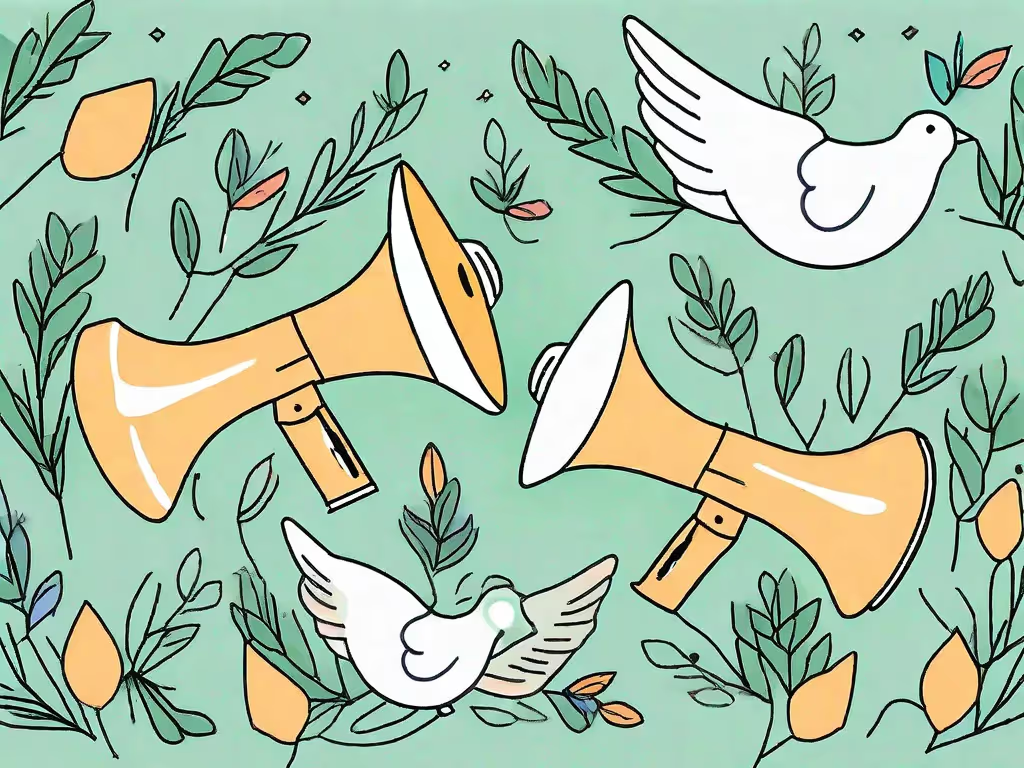Judgmental behavior is a common habit that many people possess. It involves making assumptions about others without knowing all the facts. It can be seen in all aspects of life, from our relationships to our work environment. Although it may seem harmless, being judgmental can have a significant impact on one's emotional well-being, relationships, and even society as a whole.
Understanding Judgmental Behavior
Before delving into the impact of being judgmental, it's essential to understand what it really means. According to Psychology Today, being judgmental involves making negative assumptions about others based on personal values, beliefs, or cultural norms.
Individuals who portray this type of behavior may not even realize they are doing it. They believe that their assessment of the person is accurate and justified. However, in most cases, they do not have the full story and are making assumptions based on their perception of the situation.
It is important to note that being judgmental is not always intentional. It can be a result of societal conditioning or personal experiences that have shaped our beliefs and values. However, it is crucial to recognize and address these biases to foster a more inclusive and accepting society.
Defining Judgmental Attitudes
At its core, judgmental behavior is rooted in bias, whether it be personal beliefs or social norms. For example, someone who was raised in a conservative household may judge an individual who openly identifies as LGBTQIA+ or someone who dresses in a way they deem inappropriate. Similarly, someone who has had negative experiences with a particular race may stereotype that entire ethnicity.
These subconscious biases lead to judgmental attitudes that can influence our thoughts, feelings, and actions towards others. Because these attitudes are ingrained in our minds, it can be challenging to recognize them and change our behavior.
It is important to note that judgmental attitudes can have a significant impact on individuals' mental health and well-being. Being on the receiving end of judgment can lead to feelings of shame, guilt, and low self-esteem. It can also create a toxic environment that fosters negativity and division.
Common Triggers of Judgmental Behavior
The triggers of judgmental behavior can vary widely, from social situations to personal experiences. Some common triggers include feeling threatened or insecure, seeking validation from others, or the belief that one is morally or intellectually superior to the other person.
In many cases, these triggers are rooted in our past experiences and personal beliefs. Recognizing what triggers our judgmental behavior can help us change our perspective and avoid these triggers in the future.
It is also important to note that judgmental behavior can be a defense mechanism. When we feel vulnerable or exposed, we may resort to judgment to protect ourselves from potential harm. However, this behavior ultimately harms both ourselves and those around us.
The Psychology Behind Judging Others
There are various psychological factors behind judgmental behavior, including a need for control, fear of the unknown, and the desire to fit in with one's social group.
When we judge others, we believe that we are in control of the situation. We feel that we are exerting our power over them and defining the parameters of the relationship. Similarly, fear of the unknown can make us create negative narratives about those who are different from us. Finally, the desire to fit in and be accepted by our social group often leads us to participate in judgmental behavior to prove our loyalty.
It is important to recognize that these psychological factors are not excuses for judgmental behavior. Instead, they provide insight into why we may engage in this harmful behavior and allow us to address the root causes of our biases.
In conclusion, understanding judgmental behavior is crucial for creating a more inclusive and accepting society. By recognizing our biases and addressing the root causes of our judgmental attitudes, we can foster a culture of empathy, understanding, and respect for all individuals.
The Impact of Judgement on Relationships
One of the most significant dangers of judgmental behavior is its impact on our relationships. Judgmental attitudes can lead to hostility and strained relationships with friends, family, romantic partners, and even coworkers.
However, the impact of judgment on relationships goes beyond just strained bonds. Judgment can also lead to missed opportunities for growth and understanding.
Strained Friendships and Family Bonds
When we judge our friends or family members, we are placing a barrier between us. We are no longer accepting them for who they are, but rather, we are trying to shape them into our image. This type of behavior can lead to resentment and distance between both parties.
However, when we choose to accept and understand our loved ones, we create an environment where they feel safe to be their authentic selves. This can lead to deeper connections and a stronger sense of belonging within the family or friend group.
It's essential to remember that everyone has different experiences and perspectives. By being more accepting and understanding of our loved ones, we can form stronger bonds and create a safe space for open and honest communication.
The Effect on Romantic Relationships
Being judgmental can also have a detrimental effect on romantic relationships. Negative assumptions and constant criticism erode trust and intimacy, ultimately leading to a lack of connection.
However, when we choose to approach our partner with empathy and understanding, we create a foundation of trust and intimacy. This can lead to a more fulfilling and satisfying relationship.
Furthermore, judgmental behavior can also lead to emotional abuse and manipulation, with the judgmental partner using their power to control and change their partner. This type of behavior is not only damaging to the relationship but also to the emotional well-being of the victim.
Workplace Tensions and Conflicts
Judgmental behavior can arise in the workplace, where the competitive nature and pressure for success can lead to tense and hostile environments.
However, when we choose to approach our coworkers with empathy and understanding, we create a more collaborative and productive work environment. This can lead to increased job satisfaction and ultimately, success for the entire team.
When we judge our coworkers, we can create a hostile work environment that hinders productivity and can ultimately lead to conflict and even termination. It's important to remember that everyone has different strengths and weaknesses and to recognize the value that each team member brings to the table.
In conclusion, judgmental behavior can have a significant impact on our relationships, both personal and professional. However, by choosing to approach others with empathy and understanding, we can create stronger bonds and more productive environments. Let's strive to be less judgmental and more accepting of those around us.
The Emotional Toll of Being Judgmental
Being judgmental can also take an emotional toll on our well-being, leading to increased stress and anxiety and a lowered sense of self-esteem and confidence.
Increased Stress and Anxiety
When we are judgmental, we are constantly on guard, seeking out situations where we can criticize and make negative assumptions about others.
This constant state of vigilance can lead to increased stress and anxiety levels, ultimately resulting in physical and emotional burnout.
Lowered Self-Esteem and Confidence
Ultimately, being judgmental can impact our sense of self-worth and confidence. When we are constantly judging others, we are also judging ourselves, leading to negative self-talk and a distorted view of ourselves.
It's essential to recognize that everyone's journey is different and to have compassion for ourselves and others.
The Cycle of Negativity and Criticism
Judgmental behavior can be a vicious cycle, leading to increased negativity and criticism. When we judge others, we are creating an environment of hostility and anger, which can lead to further negative thoughts and actions.
Breaking this cycle requires self-reflection and a willingness to change our behavior, recognizing that our thoughts and actions impact those around us.
The Social Consequences of Judgmental Attitudes
Finally, judgmental attitudes can also have a societal impact, including the reinforcement of stereotypes and the spread of misinformation and unfair assumptions.
Reinforcing Stereotypes and Prejudices
Judgmental behavior often stems from societal prejudices and stereotypes, which can lead to a cyclical pattern of discrimination and systemic oppression.
By challenging our own biases and being more accepting of others, we can work towards breaking down these barriers and creating a more inclusive and equitable society.
The Spread of Misinformation and Unfair Assumptions
Finally, judgmental attitudes can also lead to the spread of misinformation and unfair assumptions, ultimately leading to societal divides and a lack of progress.
By being more open-minded and accepting of others, we can work towards creating a more informed and united society.
Hindering Social Progress and Empathy
Judgmental attitudes can hinder social progress and empathy. By closing ourselves off to those who are different from us, we are limiting our ability to learn and grow.
Ultimately, being more accepting and judgment-free can help us create a more empathetic and united society, where differences are celebrated rather than condemned.
Final Thoughts
In conclusion, being judgmental can have a profound impact on our emotional well-being, relationships, and society as a whole. Recognizing our judgmental tendencies and working towards changing our behavior can help us create a more united and inclusive society, one where differences are celebrated, and compassion is king.
Aura is Your All In One App for Meditation, Mindfulness Wellbeing
Find peace every day with one app for your whole well-being. There is no one-size-fits-all solution to mental well-being. Aura is the first all-in-one wellness app that learns how to best help you. Discover an endless library of expert-created tracks for your well-being, all taught by the world’s best coaches, therapists, and storytellers. With Aura's personalized recommendations, you can find peace every morning, day and night.



.webp)






.avif)

%20(1).avif)


.avif)
.avif)
.webp)


.avif)


















































































































.avif)

















.svg)


.avif)






